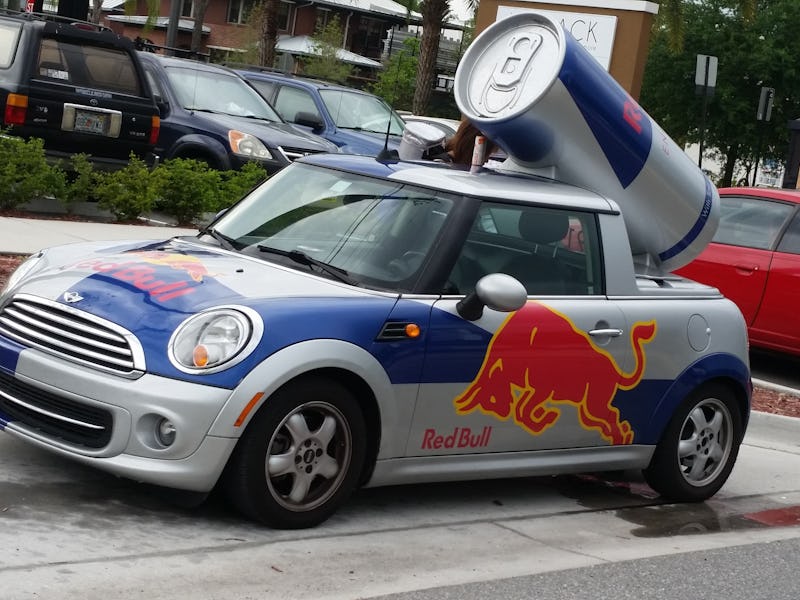Taurine Makes Red Bull Kick, but Lacks the Straightforward Punch of Caffeine
The chemical behind the energy drink boom doesn't do what you think it does. Not exactly.

Let’s talk about taurine. It’s the natural acid swirling around your evening can of Red Bull, hooking up with other chemicals to “give you wings” and potentially stimulate your hypothalamus. The chemical’s been riding a wave of hot PR since Lipovitan D, the first real energy drink, hit Bangkok in the 1970s. It eventually made its way stateside in cans of Monster and tiny vials of 5-Hour Energy. Since then, it’s enjoyed a pretty solid reputation as a pick-me-up, but the truth is, there’s no conclusive evidence that it boosts mental or physical performance.
Here’s the thing about taurine: It’s not caffeine. Its effects aren’t as straightforward or as well-documented as its energy-boosting partner in crime, which straight-up jacks into the central nervous system to curb drowsiness. Sure, taurine can have that effect, but it achieves it through much less direct means.
First, a bit about taurine itself. Known in scientific circles as 2-aminoethanesulfonic acid, the compound was named after the Latin taurus, for bull, after German scientists isolated it from ox bile in 1827. Conspiracy-minded ‘Bull heads have debated whether the taurine in their afternoon pick-me-up is derived, specifically, from bull testicles (in wilder circles, the speculation extends to bull semen and urine), a rumor that probably stemmed from a misunderstanding of what its original source fluid, bile, actually is — the moss-hued slime produced by the gall bladder, anatomical miles away from bull genitalia.
Red Bull’s creators have asserted that the taurine in its drinks is completely synthetic. You can’t blame skeptical fans for making that connection: taurine is an integral part of a chemical concoction that promises to steel you for the day ahead — and is there anything steelier than bull balls? Turns out the answer is, well, yeah; the human body naturally produces taurine because it’s necessary for so many physiological processes. It’s involved in supporting the brain’s development, modulating the contractions of the heart, balancing the levels of water and minerals in the blood, and oiling the central nervous system so it runs smoothly, among other qualities.
It’s thought that supplementing the body with additional taurine — we already do it every time we consume meat or fish — could add extra fuel to these ongoing processes, providing an overall energy boost. But there’s little scientific evidence to show that it actually jump-starts the brain.
A couple of studies in animal models have suggested that taurine has anxiety-reducing effects, which could point to an effect on the brain, but that hasn’t been demonstrated in humans yet. Evidence that taurine alone boosts mental performance and mood is pretty much nonexistent — one small study showed some positive results, but taurine was only assessed in combination with caffeine and glucuronolactone. It’s all slightly suspicious, given the compound’s ubiquity in the energy drink universe.
Dearth of scientific studies aside, it’s hard to make the case against taurine. Sure, the anecdotal evidence for its mental-enhancing prowess could very well be chalked up to the placebo effect, but because it’s actually pretty safe to consume, there’s little reason for energy drink makers not to hedge their bets and throw it in the mix. Experts at the Mayo Clinic generally set the upper daily limit on taurine to 3,000 mg a day; each can of Red Bull contains only 1,000 mg, so unless you’re a next-level RB freak, the taurine alone is probably not going to kill you.
Taken together with its energy-boosting pals and a little something called booze, however, taurine is a completely different story. Have we already forgotten about Four Loko?